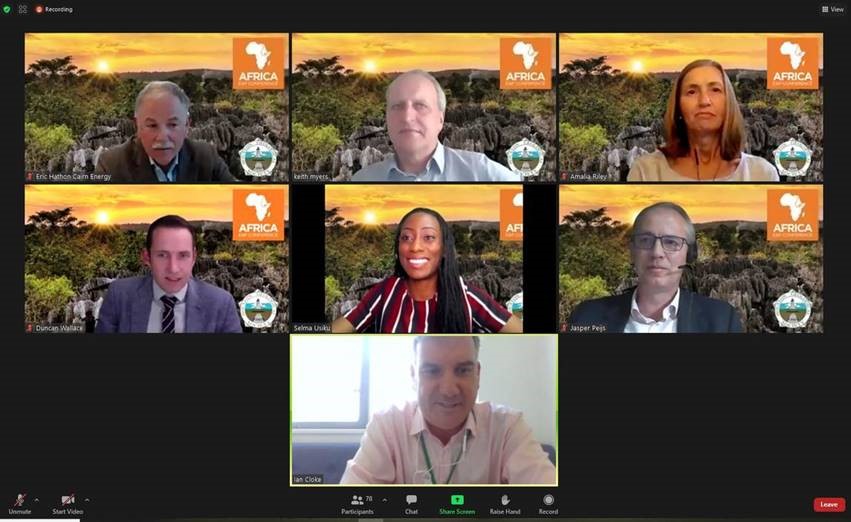
Africa has the resources it needs to provide power for its people, but aboveground challenges must be resolved to speed the way, speakers on a PESGB / HGS Africa E&P Conference 2021 panel have said.
“Over the last 10 years, the situation has deteriorated,” Afentra Energy COO Ian Cloke said. In the 1990s and 2000s, the pace of African developments was impressive, citing instances such as Zafiro in Equatorial Guinea and Jubilee in Ghana.
Some countries have shown a willingness to adapt in recent times, with Cloke naming Angola, Equatorial Guinea and Sudan.
“If those problems are solved, the money will flow. We’re seeing a lot more capital coming into the sector this year. It is out there, even if mainly for production and development,” Cloke said.
Jasper Peijs, an independent consultant who formerly headed BP’s exploration in Africa, highlighted the opportunity presented by gas. While it is only a niche fuel for now, there are major discoveries on the continent and around 600 million people lack access to electricity.
Run the numbers
“There’s enough coverage for gas to play a role. Plants are modular and inexpensive,” he said, and cost competitive with diesel. “Oil is a bit different. Changing global dynamics mean that countries can no longer assume oil will translate to reliable future revenues,” he said, citing a potential decline in demand.
One challenge in the development of gas is on financing and payments. “Tullow looked at Banda in Mauritania and Kudu in Namibia,” Cloke said. “It was the payment side we couldn’t get comfortable with. The difference is that oil is paid for in US dollars. Solving the payment issue is going to be key for projects to move forward,” the former Tullow executive said.
Amalia Olivera-Riley, Tullow’s head of exploration, said while it may take time, it is possible. The company is producing gas offshore Ghana for local consumption. “There are ways to find better ways to get gas to market. It takes making that the focus of the project.”
Technology options
Countries and companies will need to provide infrastructure, she continued. Cost and distribution dominate the access challenge. “Africa does not yet have the right technology at the right cost.”
The lack of pipelines and grids will pose a difficulty if African states emulate other parts of the world, which have this equipment. “Microgrids would be one way to go,” Cloke said. “When the wind doesn’t blow or the sun doesn’t shine there’s an option for micro gas.”
Peijs also cited options around small-scale or micro LNG. Alternatively, players can work to strengthen power pools and provide “gas by wire”, in the transportation of electrons.
One company hoping to accomplish some of this is Chariot. The company is working on two fronts, Duncan Wallace explained. The first is gas, with a field off Morocco, which it intends to use to supply onshore power needs. The second is power, where it aims to work in the mining sector.
The industry has “tried for decades not to find gas”, Wallace said. Now, times are changing but there is a lack of infrastructure, demand and creditworthiness from offtakers. “The challenges are all above ground. You have to find the right place,” he said.
“In the right location, gas can go into a hybrid project, or perhaps hydrogen, which allows excess power to be stored. The energy transition is happening and everyone will have to adapt.”
The conference continues today.
